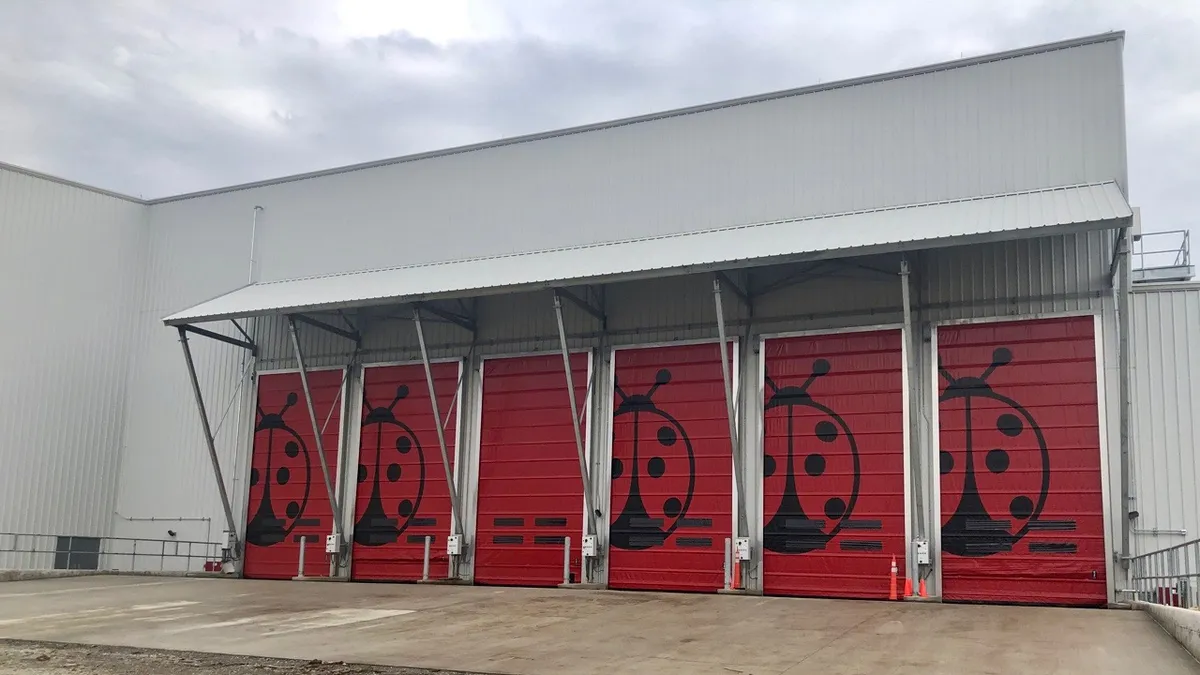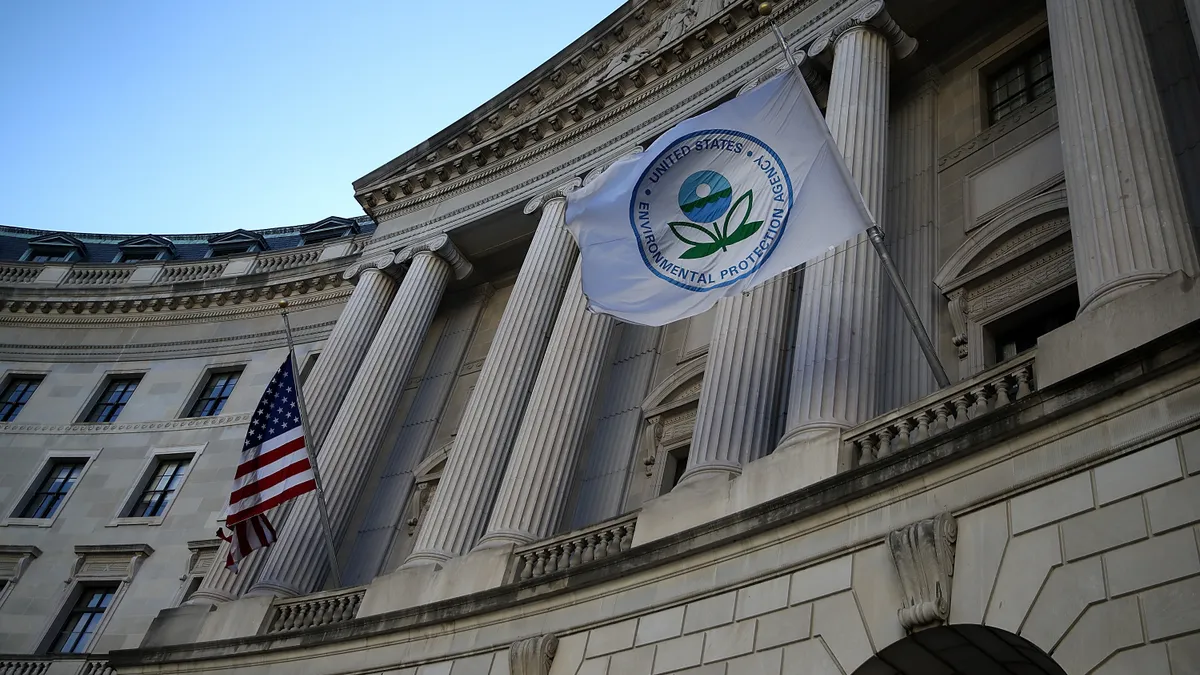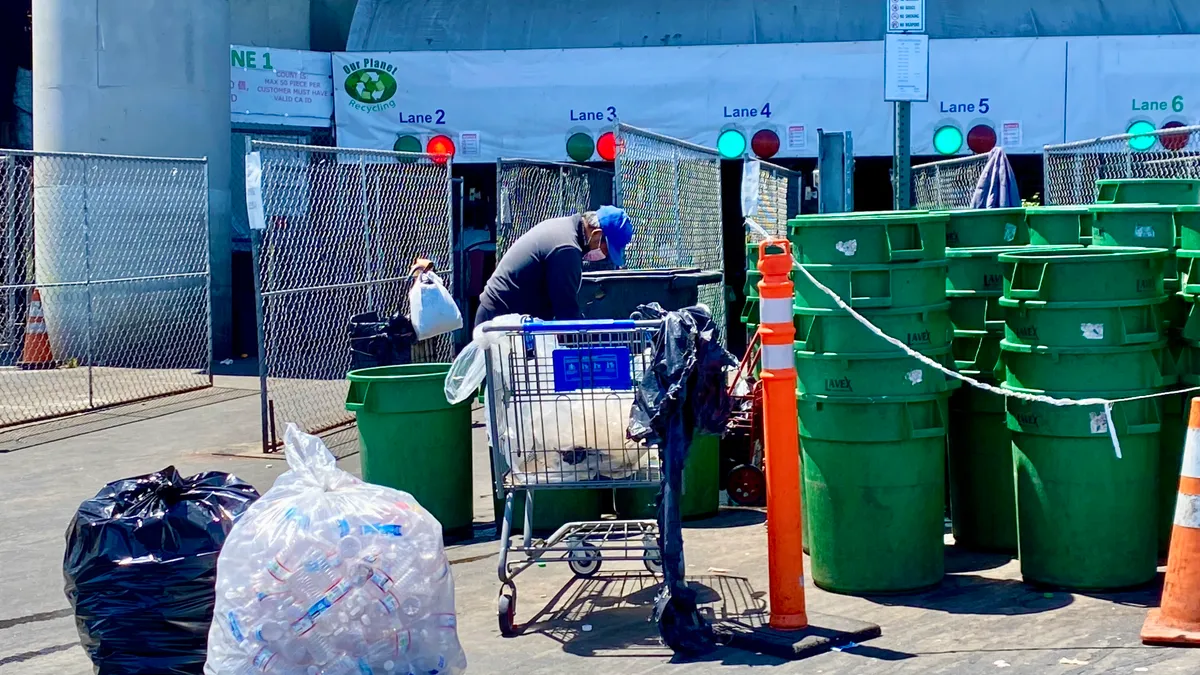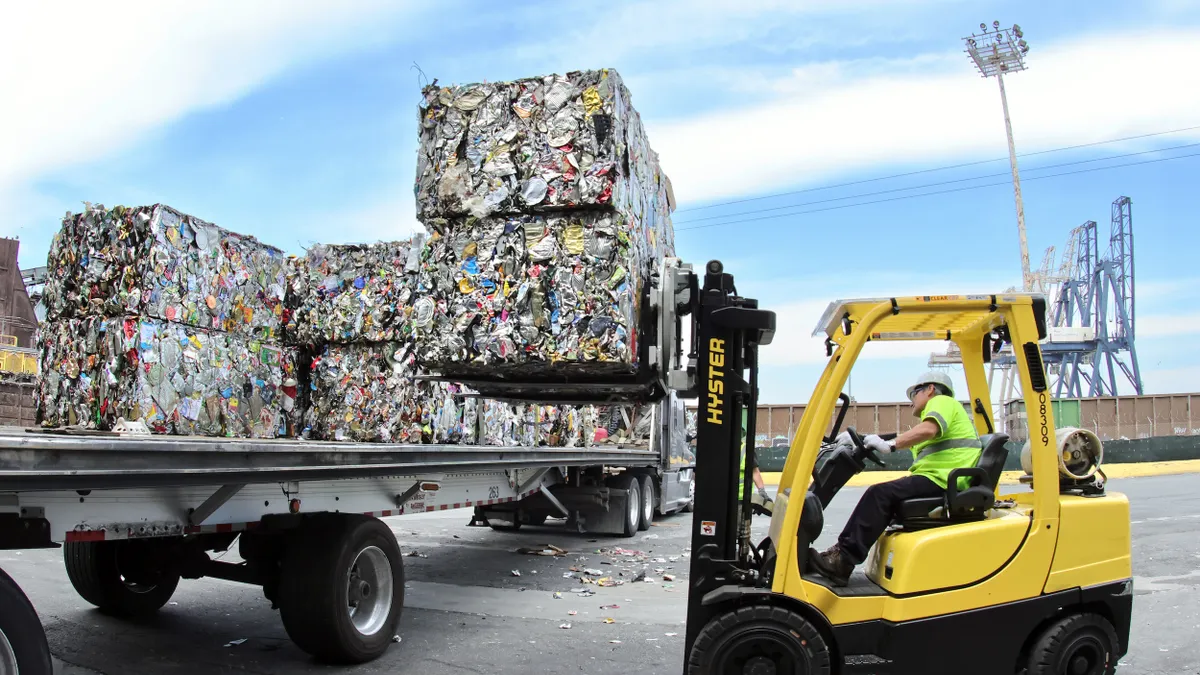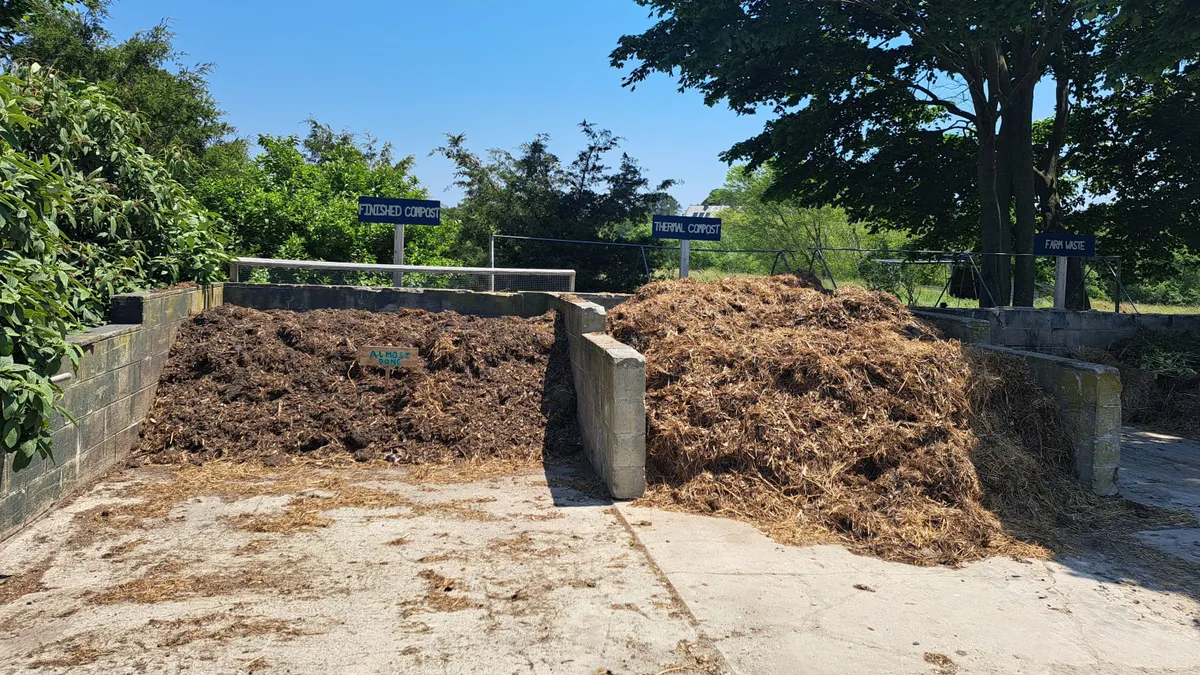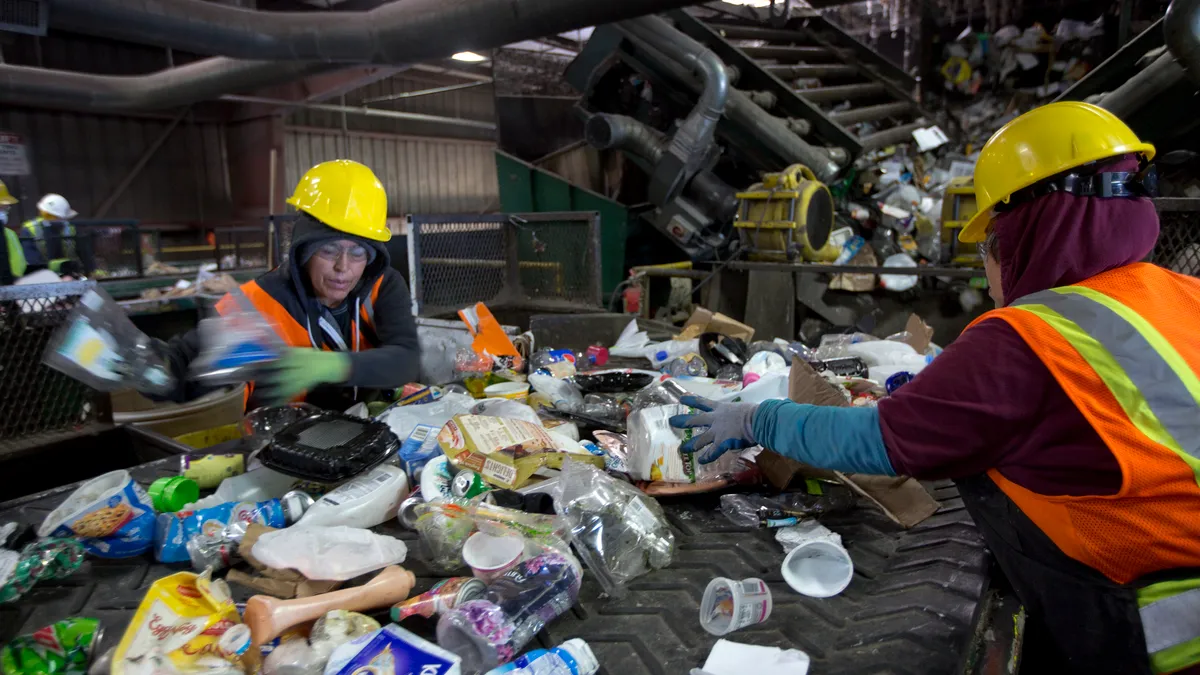Amid ongoing industry consolidation, new competitors are still bound to emerge — and BioHiTech Global has become an increasingly active player to watch in the Mid-Atlantic and Northeast.
The estimated $33 million Entsorga West Virginia facility, which the company owns a majority stake in, began accepting material this spring and has capacity for up to 120,000 tons per year. Through a "high efficiency biological treatment" process, the operation is turning about 45% of the overall stream into an EPA-approved fuel for use in a nearby cement plant.
In addition, BioHiTech Global has been expanding its presence through a growing on-site aerobic digester business and traditional collection assets. Last year, in partnership with private equity backer Kinderhook Industries, the company acquired a New Jersey hauler to form Gold Medal Group. Since then, Gold Medal has expanded through further acquisitions — including Apple Valley Waste in December.
Waste Dive recently spoke with Frank E. Celli, BioHiTech Global's CEO, and Michael Schmidt, Gold Medal's executive vice president of strategic growth and development, to learn more about their future expansion plans.
The following conversation has been edited for brevity and annotated for context.
WASTE DIVE: How has it been going at the new West Virginia facility in the initial months that you're ramping up?
FRANK E. CELLI: So far things are going pretty well. We're hoping to have the facility fully ramped up by the end of this month [and] running at full capacity, at least on the MSW side. We'll start bringing some commercial and industrial materials in actually as early as this week.
Now we're just trying to tinker with the blend, get a better understanding of the mass balance of the facility, make sure our logistics are scheduled correctly. A lot of this stuff couldn't really be planned for until you actually commenced operation. We feel great about where we are right now. It's the first time this has been done in the United Sates, so you would expect there would be some learning curves.
We're hearing more mechanical biological treatment (MBT) concepts getting talked about now. What's the easiest way to describe how this particular facility is unique compared to others in the U.S.?
CELLI: There's all kinds of forms of mechanical biological treatment. This facility uses a patented process called the HEBioT – high efficiency biological treatment. The patent is owned by our partners Entsorga over in Italy, the engineering firm. The difference between this and let's say an MBT plant that might just make refuse-derived fuel is that the process itself – particularly the bio-oxidation process – uses that patented reverse flow air system. So the organic fraction of the waste can be stabilized.
The end result is meant to be a homogenous feedstock that's got consistent BTU value, consistent moisture levels and behaves like what a typical fossil fuel might behave like – with a small band of deviation. Whereas refuse-derived fuel, other fuels that might be manufactured in a MBT plant not using this patented process, are typically still deemed waste at the end of the process. Our fuel will be deemed an engineered fuel, a commodity. [Other fuels] can have huge fluctuations in moisture content and throughput and mass balance.
The Entsorga facility is currently receiving residential material from Berkeley, Jefferson, and Morgan counties — all collected by Apple Valley — in partnership with the Berkeley County Solid Waste Authority.
How has the market been responding locally? I know you have some customers lined up already, but have you noticed others making the choice to come to you instead of going to regional landfills?
MICHAEL SCHMIDT: Yeah, we've had a lot of interest a lot of excitement from the customers in the area to divert their waste stream to our facility. We've actually been doing a number of tours as well. We were joking around last week and I called it like "Waste Disneyland." There are more and more Fortune 500 companies, with their sustainability directors, that we've marched through the facility.
The interest level continues to rise ... Now it just comes down to doing the math and understanding logistics as to how to get it there.
Schmidt goes on to describe how direct hauls are generally coming from within a 30-40 mile radius, especially if customers request their haulers go to the facility. Long-haul loads, however, are also in the mix — some commercial and industrial material, for instance, has been coming from Baltimore.
Beyond the first facility in West Virginia, BioHiTech Global is also in the process of getting a second site permitted in Rensselaer, New York. The company is awaiting final state approval after submitting its application in February.
When we last talked, you'd mentioned potential in the Philadelphia region and possibly on the West Coast. Anything new to report on where we might see the next facility?
SCHMIDT: The Philadelphia market is that next market we want to go after. We are talking with some various municipalities in New York, as well as New Jersey. So it really just comes down to who expresses that highest level of interest and wants to get moving forward.
Would it be accurate to say your focus will remain in the Mid-Atlantic and Northeast regions where disposal capacity is getting tighter, versus a state such as Texas?
SCHMIDT: We have the licensing rights to develop these facilities in 11 Northeastern states. I think we've got a full plate with opportunity in the Northeast with continued increase in population, coupled with continued decline in landfill capacity. Those two are at odds with each other ... There's always that opportunity to branch out, but I think we're going to be pretty busy for a while here.
Later in the interview, Schmidt specified that as more landfills near capacity, he believes municipalities will be interested in a solution to "extend the useful life" of those sites. With this in mind, he said that rather than the HEBioT technology being a competitor, "we are a complement to many landfills."
With the continued recycling crisis, with China not accepting what we once thought was recycling and other countries like India, Vietnam, not accepting that material either ... it is making its way back to the landfills. So that continues to be at odds with declining landfill capacity, because that material takes up airspace.
This project has been in the works for a number of years, and these issues weren't forecasted back then. Has the recycling situation been a net positive for your model, or are you running into some of the usual challenges on the commodity front?
Glass, metals, certain plastics and large cardboard are pulled out of the stream at various points in Entsorga's process for recovery. Other fiber grades stay in the mix to become fuel.
CELLI: It doesn't really pose any particular challenges to to this project or technology. We see quite the opposite, that we could potentially be some part of the solution to the challenges if they continue to go on. I think there's a lot of uncertainty as to what's going to happen with the recycling market in general.
At the end of the day, we don't want to see more recyclables in the trash, but they do have a high BTU content. If they find their way there, because economics kind of forced them that direction, I think it only increases the yield of fuel that we'll get out of our household trash.
So if there's any effect at all, we think it probably will be a positive effect on this particular project and projects in the future. But we're certainly not banking on the recycling industry completely falling apart in order for our growth in the future.
BioHiTech Global offers on-site digester technology in a variety of available sizes, including the recently released Sapling unit. The company's latest quarterly earnings report indicates a growing shift toward rental revenue versus sales for these models.
What was the turning point on that shift to the rental model?
CELLI: We wanted to provide the box that essentially allowed us to capture the data and analytics and monetize that stream of information that we felt was very valuable. So it was about that time that we decided we want to be in that all-in, recurring annual revenue model – high margin – to create shareholder value. So I would say that was the pinnacle, shifting from an industrial services product into more of an IoT product.
SCHMIDT: [This helps] with not just revenue predictability, but cash flow predictability going out into the future.
As far as where we can see future growth and interest for the digester products, is it mainly going to be in those Northeast states and cities that have policies in place to either mandate or incentivize organics diversion?
CELLI: I think there's definitely a regulatory driver, but quite frankly I think it's bigger than that. I think our customers are not necessarily only driven by regulation. They're driven by their own self-imposed sustainability goals. At the end of the day, our products end up being typically 30-35% less expensive than traditional waste removal so there's a cost savings benefit as well .
There's no doubt that regulation helps, but I don't know that we're necessarily dependent on the regulated markets to grow.
The critiques that come up sometimes for options that involve codigestion at a wastewater treatment plant, on-site solutions and otherwise is that maybe you're not capturing the highest value, and and there can be issues with the biosolids. Have you run into those questions?
CELLI: Absolutely. What are our competitors? There's not many. But to name them, there's the concept of anaerobic digestion. There's the concept of composting. And then there's always the question of "what do you run up against by discharging into the wastewater treatment plants?"
The logistical costs associated with collecting organics in small increments and transporting them, either to a compost site or an anaerobic digester, are challenging – from a cost standpoint, and from an environmental standpoint as well.
We've had a [life cycle assessment] done by the University of Delaware that shows the efficiency that we provide in using the aerobic digestion process on-site is far more environmentally conscious, and certainly cost-effective, and doesn't put a significant burden on the wastewater treatment plants. Typically now they're extracting those biosolids and using them for feedstock to create biogas. In addition, the bacteria that we use for treatment of the waste on-site is very similar to the primary treatment process at a wastewater treatment plant. We've been told by some wastewater treatment plants that they actually like it, because we're introducing almost pre-processing into the sewer mains.
Our solution is not the best solution for everyone. The same way composting is not the best solution for everyone. I think it's a combination of all of the various options out there, depending on geography and volume, and there's a whole lot of variables that determine what's the best source of treatment.
There seems to be a lot of growth potential, but you don't have the same profile as a traditional waste company. How do you plan to be competitive with some of these landfill giants? How big do you think you can get in the coming years?
CELLI: At Gold Medal, our focus is on being an integrated, regional, cutting edge provider of waste collection and disposal services.
We're going to think outside the box. We're going to use different technologies. We're going to use our digester, we're going to use our HEBioT plant. We're going to use traditional landfills and transfer stations. We don't have some magic wand that just makes waste disappear, it doesn't exist. So right now we've got a fair amount of business in four or five states within 250 miles. We think there's a whole lot of market opportunity within our existing geographic footprint.
We did our first acquisition in January of 2018 and we've tripled in size since then in 18 months. Can we run at that pace? I think we can. I'd like to see us at least doubling year over year.
The Northeast U.S. is a huge market. If you look at the southern New Jersey, Greater Philadelphia, Maryland panhandle, Baltimore – markets where we have heavy concentration of the business – there's a lot of business and a lot of growth in those markets. So we'll be busy for years to come here and Kinderhook, who's our private equity sponsor at Gold Medal, is poised to grow ... We think we do things differently than what's traditionally offered by some of our competitors, and we think it's a differentiator that's going to allow us to grow.



